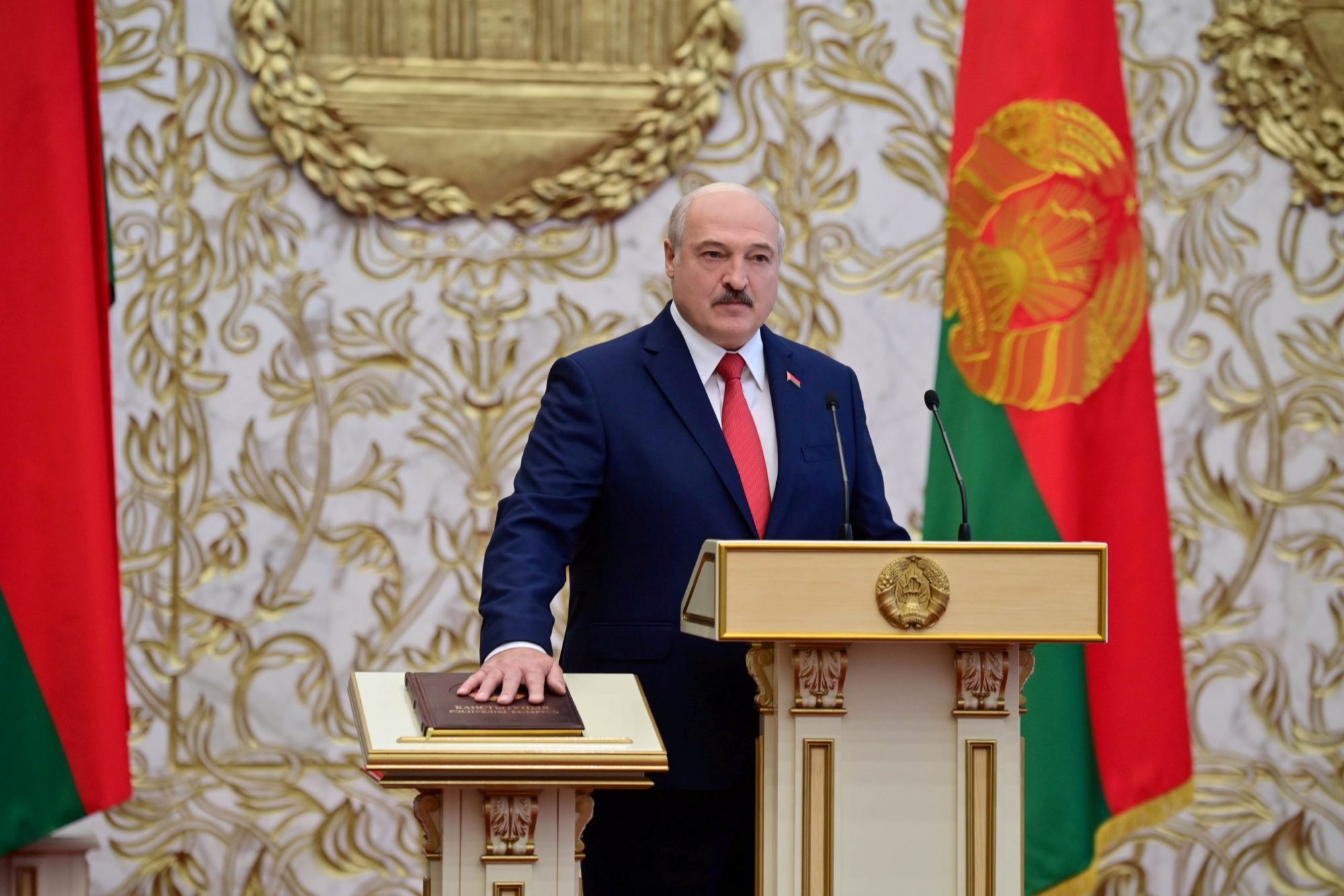- Joined
- Apr 18, 2013
- Messages
- 94,313
- Reaction score
- 82,705
- Location
- Barsoom
- Gender
- Male
- Political Leaning
- Independent

Lukashenka’s rapid decline is giving Putin nightmares
Belarus dictator Alyaksandr Lukashenka's worsening predicament is setting off alarm bells in the Kremlin, where events in neighboring Belarus are viewed as a possible blueprint for future unrest inside Russia itself.
9/26/20
Belarus dictator Alyaksandr Lukashenka’s secret inauguration on September 23 was a masterpiece of accidental political theater. Everything about the event seemed specifically designed to underline his lack of legitimacy, from the shabby nature of the unannounced ceremony itself, to the military-style lock down of central Minsk that accompanied it. Predictably, this inauguration charade did little to revive Lukashenka’s plummeting credibility. he list of countries to join the EU in refusing to recognize Lukashenka’s inauguration included the United States, Canada, and Ukraine. Meanwhile, the only nation to offer congratulations was Turkmenistan. This international rejection of Lukashenka’s inauguration was the latest indication of the Belarus dictator’s rapid descent towards pariah status. Lukashenka’s diplomatic isolation will further weaken his domestic position and raise the stakes in the ongoing Belarus crisis. His worsening predicament will also set off alarm bells in the Kremlin, where events in neighboring Belarus are viewed as a possible blueprint for future unrest inside Russia. If Lukashenka can lose his legitimacy so quickly, how secure is the position of fellow post-Soviet dictator Vladimir Putin? It remains far too early to speak of a looming crisis in Russia, but Lukashenka’s current plight has clearly sent an unseasonal chill through the corridors of the Kremlin. After more than a quarter of a century in power, the Belarusian dictator’s position of domestic dominance has been eroded in a matter of weeks.
Isolated at home and abroad, he now finds himself heavily reliant on Russian support as he clings onto power. Prior to the recent outbreak of nationwide protests in Belarus, few in Moscow believed Lukashenka to be in any serious danger. On the contrary, his fiefdom was seen as a model of authoritarian stability. There was considerable surprise, therefore, when Lukashenka’s regime began showing the first signs of collapse just days after unrest began on August 9. This prompted Russia to intervene, beginning in mid-August with the arrival in Minsk of Kremlin propaganda teams. Putin has since contributed security experts and financial support, while also confirming his readiness to send Russian forces into Belarus if the situation continues to deteriorate. Moscow’s backing has proved sufficient to keep Lukashenka in power, for the time being at least. However, it has done little to soothe Kremlin nerves. If Putin finds himself in a similar position, who will come to his rescue? The strength of Putin’s domestic position should not be exaggerated. A stagnating economy, falling incomes, and unpopular pension reforms have dented his formerly sky high approval ratings. Many observers also view the late August Novichok poisoning of Russian opposition figure Alexei Navalny as a precautionary measure linked to developments in Belarus, with the aim of removing a potential protest leader ahead of possible anti-Kremlin unrest.
The precarious situation of Lukashenka in Belarus, the attempted assassination of Russian activist Alexey Navalny, and the Kremlin offer of a truce to Washington concerning election meddling are all connected.
Putin is busy insulating himself from any possible Russian "color revolution". Ukraine has been his nightmare since 2014. Now it is Belarus. Now is when he will take the "self-preservation" gloves off.
